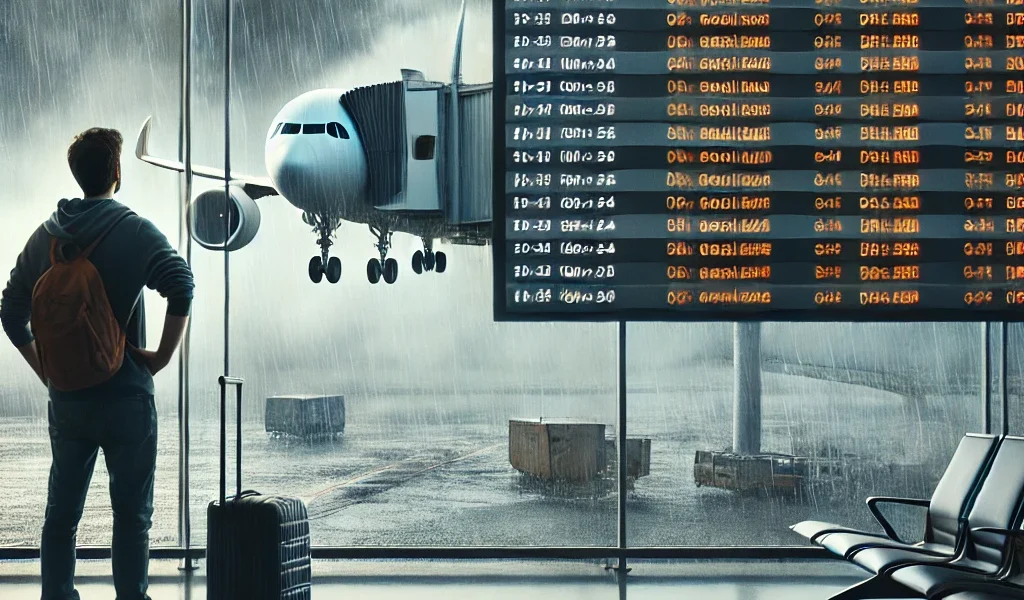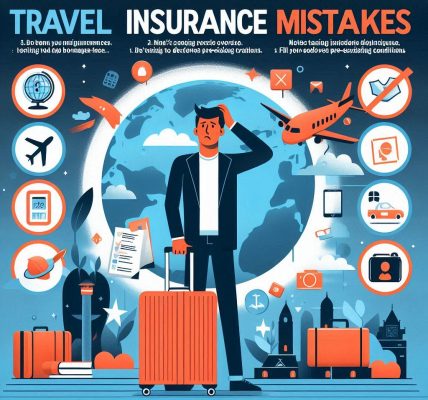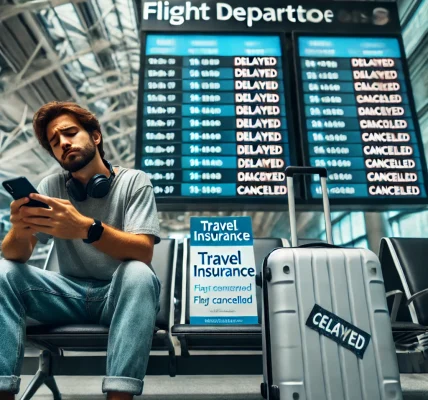How Travel Insurance Protects You from Natural Disasters and Weather-Related Delays
Introduction
Traveling is an exciting adventure, but unpredictable weather and natural disasters can quickly turn plans upside down. From hurricanes and snowstorms to earthquakes and floods, these events can lead to trip cancellations, flight delays, and unexpected expenses. Fortunately, travel insurance can provide financial protection and peace of mind in such situations.
In this guide, we’ll explore how travel insurance safeguards you from weather-related disruptions and natural disasters, what to look for in a policy, and tips to ensure a smooth journey even in the face of extreme weather events.
Why Travel Insurance Is Essential for Weather-Related Disruptions
1. Trip Cancellations Due to Natural Disasters
Many travel insurance policies cover trip cancellations caused by natural disasters, such as hurricanes, wildfires, and earthquakes. If your destination is hit by a disaster before your departure, you may be eligible for reimbursement of non-refundable expenses like flights, hotel bookings, and tours.
Example: A traveler books a vacation to Hawaii, but a hurricane forces the island to shut down airports and hotels. Their travel insurance reimburses them for prepaid expenses.
2. Flight Delays and Cancellations
Severe weather conditions often lead to flight delays or cancellations. Travel insurance can cover the costs of rebooking flights, hotel stays, and meals if you’re stranded due to bad weather.
Example: A blizzard cancels a traveler’s flight from New York to London. Their travel insurance covers an overnight stay at a hotel and meals until the next available flight.
3. Missed Connections Due to Weather Delays
If bad weather causes you to miss a connecting flight or cruise departure, travel insurance can cover the cost of catching up with your trip.
Example: A traveler’s flight is delayed due to heavy rain, making them miss their cruise departure from Miami. Travel insurance pays for a new flight to the next port of call.
4. Evacuation Due to Natural Disasters
If a natural disaster occurs while you are at your destination and you need to evacuate, some travel insurance policies cover emergency transportation and additional expenses to return home safely.
Example: A traveler in Bali experiences an earthquake and is forced to evacuate. Their travel insurance covers the cost of an emergency flight back home.
5. Accommodation and Additional Expenses
In cases where a storm, flood, or other disaster disrupts your travel plans, insurance can cover unexpected lodging, transportation, and meal costs.
Example: A traveler’s hotel in the Philippines gets flooded due to a typhoon. Their insurance helps cover a new hotel stay and transportation to a safer location.
What to Look for in a Travel Insurance Policy
When selecting a policy that protects against natural disasters and weather-related delays, consider these key features:
1. Trip Cancellation and Interruption Coverage
Look for policies that cover cancellations due to hurricanes, earthquakes, wildfires, and other disasters.
2. Trip Delay and Missed Connection Coverage
Ensure your policy reimburses expenses if your trip is delayed or if you miss a flight or cruise due to weather-related disruptions.
3. Emergency Evacuation and Repatriation
Choose a policy that covers evacuation in case of extreme weather events or natural disasters.
4. Accommodation and Meal Expenses
Check if your policy reimburses additional lodging and food expenses caused by weather-related travel disruptions.
5. Cancel for Any Reason (CFAR) Coverage
This optional upgrade allows you to cancel for any reason, providing even greater flexibility in unpredictable situations.
Tips for Dealing with Weather-Related Travel Disruptions
1. Check Weather Forecasts Before Traveling
Stay informed about weather conditions at your destination before departure.
2. Book Flexible Travel Options
Choose airlines and hotels with flexible cancellation policies to minimize losses.
3. Purchase Travel Insurance Early
Buy insurance as soon as you book your trip. Coverage for natural disasters may not apply if a storm is already named or a disaster is ongoing.
4. Keep Emergency Contacts Handy
Save contact details for your airline, hotel, embassy, and travel insurance provider for quick assistance in case of an emergency.
5. Follow Local Authorities’ Instructions
If a natural disaster occurs while traveling, adhere to evacuation orders and seek shelter as needed.
Conclusion
Weather-related travel disruptions and natural disasters can strike unexpectedly, but the right travel insurance policy can protect you from financial loss and provide essential support. Whether you’re facing a delayed flight, a canceled cruise, or an emergency evacuation, comprehensive travel insurance ensures that you’re covered and can continue your journey with peace of mind.
Before your next trip, carefully review your insurance options, plan ahead for weather uncertainties, and travel with confidence knowing you have the right protection in place.




